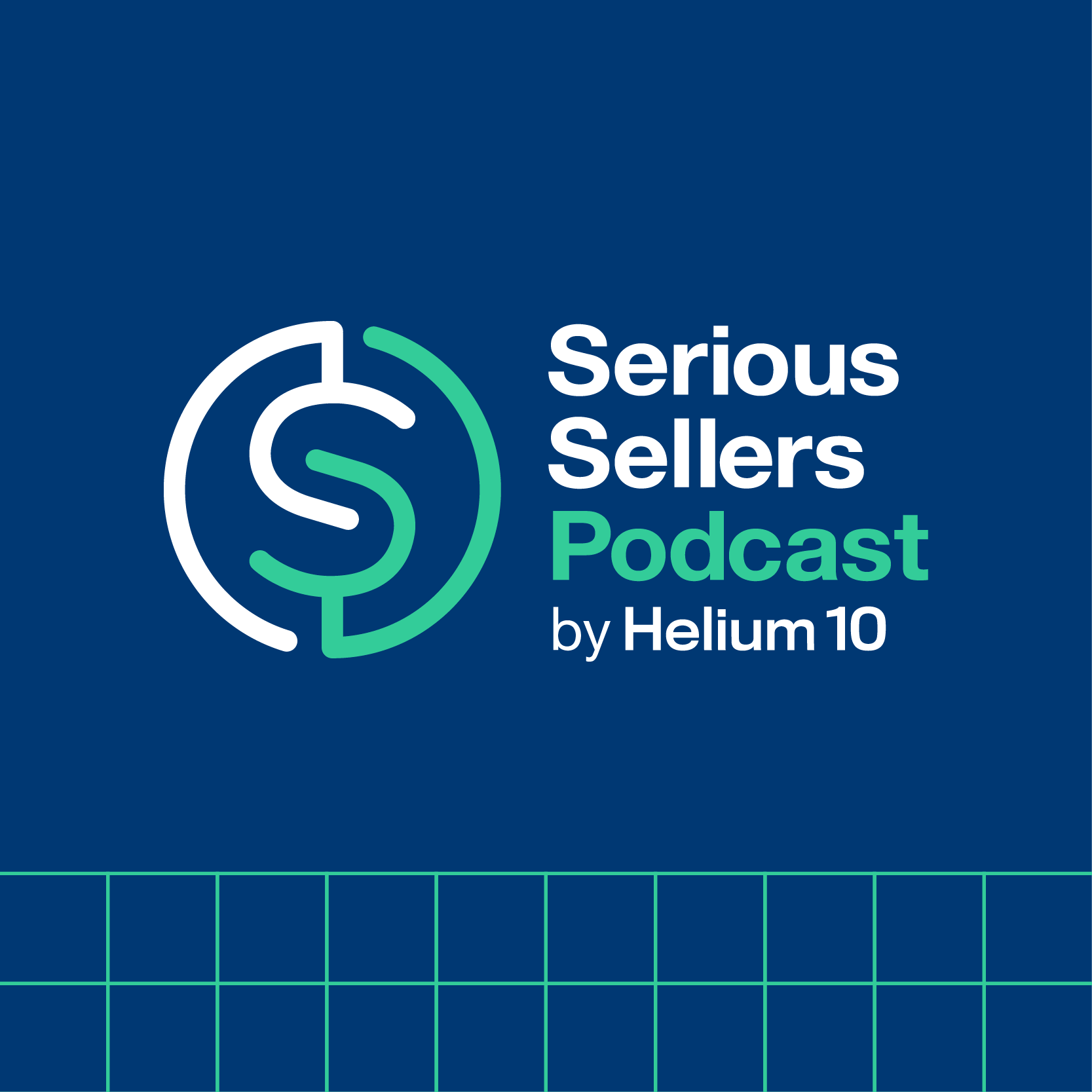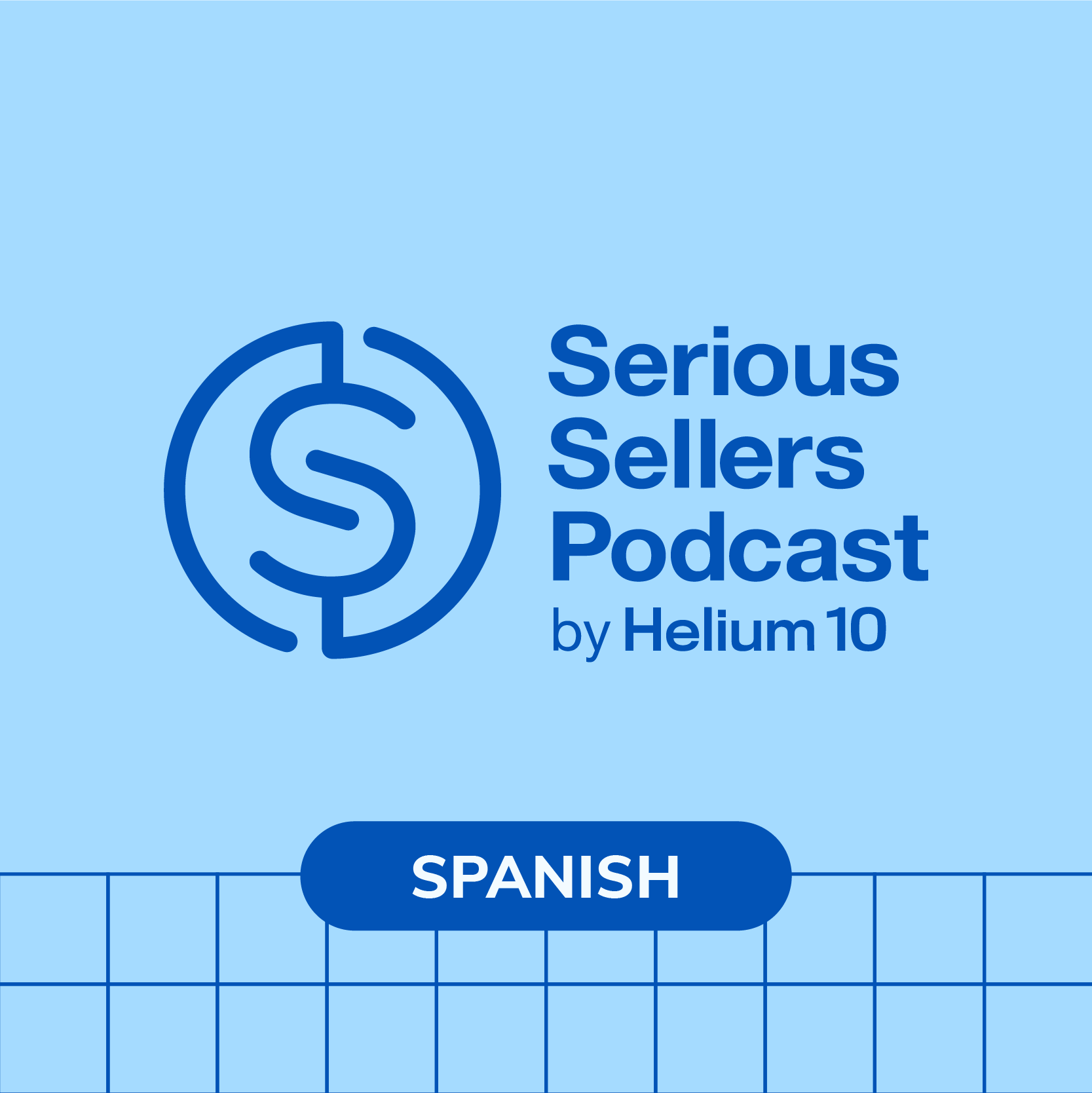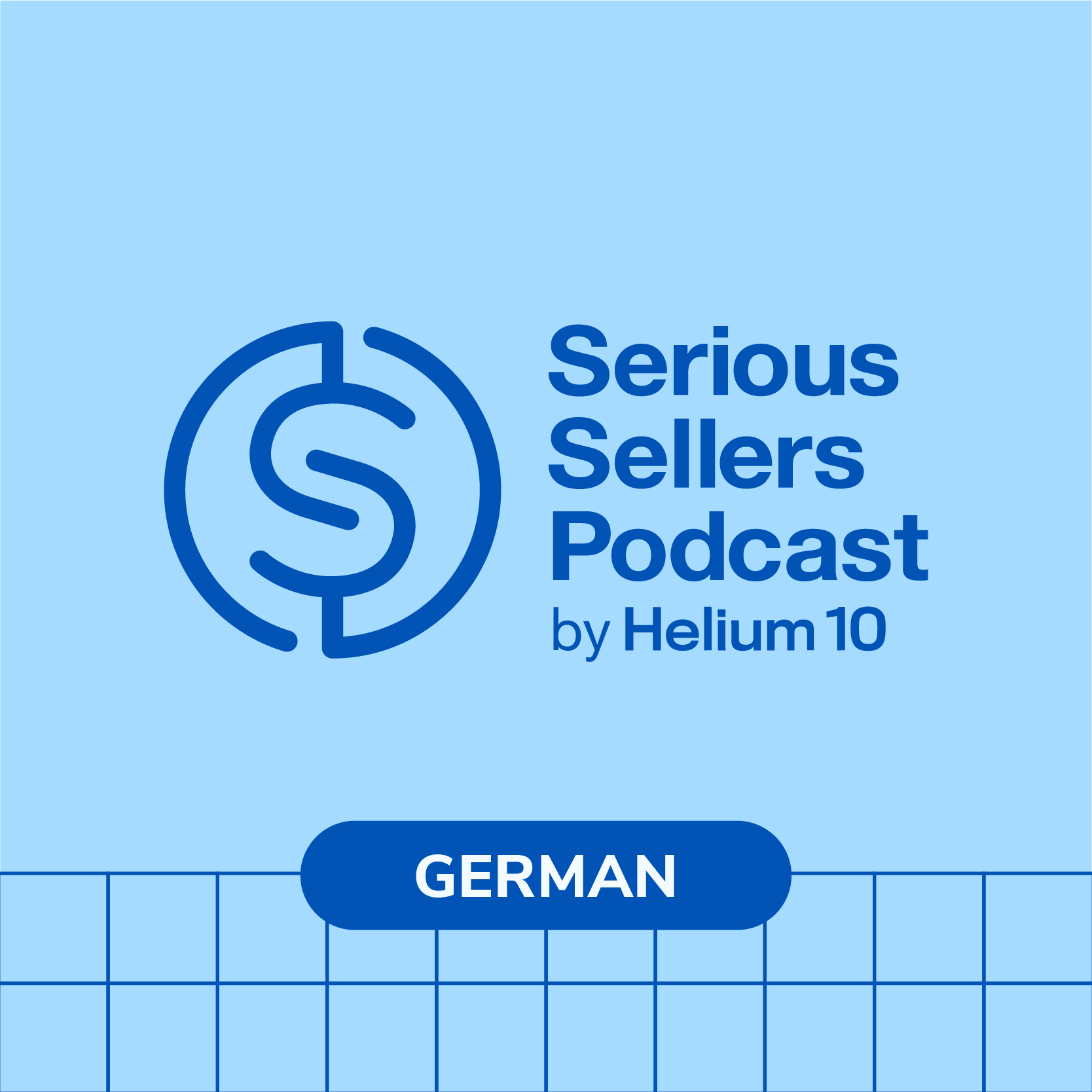Helium 10 Buzz 2/9/22: Massive Gains For Amazon Ads, FAQs Answered, & How To Find The Top Keywords For Listings

We’re back with another episode of the Helium 10 Weekly Buzz with Helium 10’s Brand Evangelist Lem Turner!
Every week, we cover the latest breaking news in the Amazon and E-commerce space, answer the questions you’ve submitted, and provide a training tip for the week.
Amazon’s massive sales and ad revenue growth leading to increase in Amazon shares https://fortune.com/2022/02/03/amazon-q4-2021-earnings-ad-business-shares-skyrocketing/
Amazon’s price matching feature for Amazon Resellers https://sellercentral.amazon.com/gp/headlines
Walmart Open Call 2022, the largest sourcing event, offering exclusive early access to Walmart sellers https://marketplace.walmart.com/open-call-2022/
Lem also answered some of your most commonly asked questions in a brief AMA portion which we will be doing every four weeks. Questions he covered include:
(1) Can I use both Request a Review & Custom Message Templates?
(2) Should I try to slow down sales if I’m running out of stock?
and
(3) Is it better to focus on keywords my product ranks for or keywords my competitors rank for?Don’t forget to drop your questions down below so you have the chance to get them answered LIVE the next time we have an AMA session.
Helium 10’s Director of Training, Bradley Sutton, closes out the episode by getting into how users can utilize Cerebro for finding keywords that are driving the organic sales of a product on Amazon. Cerebro is a brilliant tool that can find top ranking keywords used by your competition to help you improve your own listing!
In this episode of the Weekly Buzz, Lem shares the latest on:
- 00:45 – Massive Gains For Amazon Ads
- 02:00 – Pricing News For Amazon Resellers
- 03:15 – Walmart Open Call 2022
- 04:00 – Lem Answers Your Frequently Asked Questions
- 08:00 – How to Find the Top Keywords Related to a Listing Using Cerebro
- 14:45 – Follow Us In TikTok @helium10software
Transcript
Lem Turner:
Hello everybody, and welcome to another episode of the Helium 10 Weekly Buzz. My name is Lem Turner, and this is a show where we get you familiar with the latest news in the Amazon and e-commerce space. Interview people in the industry that you need to hear from and provide a Training Tip of the Week that will give you serious strategies for sellers of any level in the Amazon, Walmart, and e-commerce world. So let’s see what’s buzzing this week. Today. We’re gonna go over Amazon’s latest earnings report and what you need to know about it. And then we’re gonna dive into some of our most frequently asked questions. And then finally, we’re gonna get into our tip of the week involving keywords, top keywords for your listing. So let’s get started first with our news for the week. So our first news piece comes from Amazon’s earnings report and there have been massive gains for Amazon’s ads.
Lem Turner:
So Amazon’s sales like overall sales grew 9% year over year up to $137.4 billion. Now because of this naturally Amazon’s shares shot up in light up the positive news and their earnings report also released details about their advertising division that people haven’t seen in quite some time. Their ad revenue, believe it or not, grew by 32% year over year with only Google and Meta/Facebook being the first and second ones that are larger than the tighten up Amazon. So that Amazon’s third with their advertising revenue. So this just goes to show how significant Amazon ads have been over the past year for Amazon sellers. So drop a comment down below. Let me know if you’re one of the people that popped on Amazon ads hopped on PPC and realized the value of that this year. So speaking of sellers, sellers made up around 56% of unit sales in the past fourth quarter, which is massive really that Amazon needs third party sellers in order to drive its sales considering they made up around 56%. That’s, that’s a pretty healthy chunk of sales.
Lem Turner:
So now let’s move on to our next news piece of the week, which are pricing news for Amazon reseller. So this piece of news comes directly from Amazon seller central with your new pricing editions that you can now access by going to your managed inventory tab within Amazon Seller Central. From there, you can now see how prices compare to marketplaces outside of Amazon, such as Target, Walmart, Home Depot, et cetera, in order to increase your likelihood of getting the buy box. Because as we all know, outside sources can really influence how competitive Amazon deems are prices to be. So this is really helpful. You can now see how your price compares to the–, you can see how your current product price compares to three different price points across the platform. You can compare to the current buy box price, the current competitive price of whatever the most competitive price is outside of Amazon, like through other platforms, and the lowest price that’s being offered on that listing.
Lem Turner:
And you can opt in to match any of these prices to increase your likelihood of getting the buy box. Now, this seems like a tool that would really mainly assist those doing arbitrage sales or wholesale. So this is definitely something to keep in mind. So now let’s move on to our last news piece of the day, which is Walmart open call 2022. So Walmart for the first time is offering exclusive early access to their annual open call event, which is the largest sourcing event for Walmart source and Sam’s Clubs. Now, this event is restricted only for–, sorry guys, but it’s restricted only for brand owners that have products that are either made, grown, or assembled in the US, and application window has already been opened on the 1st of February. So this recent February 1st and we’ll close on February 25th now in order to apply Amazon sellers.
Lem Turner:
So keep an eye under email inbox or seller center to keep for an exclusive invite to apply. Now, this is an opportunity for you to be able to sell your products physically in the stores of Walmart and Sam’s Club. So certainly a massive opportunity that you should surely take advantage of if you do have the chance to apply. Okay, great, where that ends our news of the week. Now we’re gonna transition into our new, ask us anything series of frequently asked questions from our users. Now, this is something we’re gonna be doing around every four weeks or so. So if you have any questions, feel free to email our customer support and let them know, it’s a question for the Weekly Buzz and we’ll get to it. So now let’s get into our questions of the week.
Lem Turner:
So our first question is can I use both a request, a review template, and a custom message template. Now, this is in regards to Follow-Up. So the request a review template is a template from Amazon that they’ve created and drafted for sellers like us to use the custom message template is something that you would create yourself in Follow-Up’s Helium 10’s tool. So the short answer is no, you cannot use both long answer is that it’s highly recommended that you only use one per Amazon’s terms of service regarding spam. So we highly recommend the request review template. If you want to stick with an Amazon improved message that will always stay with an Amazon’s terms of service. And if you aren’t that great at copywriting, or just simply want to outsource the job, there’s no shame in that at all. Or if you are an experienced seller, we recommend you use the custom message templates, because those are the custom message templates gonna help you be able to maximize the value of your post purchase emails, as well as invite the opportunity to build brand loyalty through informed and helpful emails, just to build a much more positive customer experience overall.
Lem Turner:
So that’s a really great question. So I’m moving on to our second question. Now, this is a really popular question that we see a lot in our Facebook groups, and we’ve even had to censor some bad advice there about this. And the question is, should I try to slow down sales if I’m running out of stocks? So no, should not do this at all. You don’t wanna do that. And the reason why is because it might affect your organic rank for keywords if your conversion and sales velocity starts to decrease, and it will make it that much harder once you are back in stock to get back to your former glory, it’s really a lot. You’re gonna place yourself in a lot more of an optimal situation. If you just run outta stock while maintaining a positive conversion rate in sales velocity, as Amazon’s algorithm is gonna be able to detect that you were a successful product once you come back in stock.
Lem Turner:
Because you want the last, like impression that you’ve left on Amazon’s algorithm them is that you were a successful product to have a really healthy conversion rate and sales velocity, rather than one that you reduced your prices, or you did something to slow down your sales. And just based off that, Amazon, all they see is that the last time you sold you, weren’t doing too hot with your organic rank. Your sales velocity was down on your conversion rate is turning down. It’s gonna be a lot harder for you to get back up to your former success. That’s a really great question. So lastly, our final question is, is it better to focus on keywords that my product itself ranks for or keywords that my competitors rank for? Now, this is kind of a trick question because the answer is both, right?
Lem Turner:
Of course, you wanna be mindful towards keywords that your product is doing well and keywords that exist in your niche that are relevant to your product. But it’s also super important to say, stay on top of keywords that your direct competitors are converting for. So that way you can make sure that you stay up to par of being competitive for that same amount of keywords that they’re also doing well for. Cause there’s definitely a possibility that you haven’t included those keywords into your listing or into your PPC or that these are new keywords that are trending well and are helping your product, your competitors convert for that’s obviously keywords that you are gonna wanna pull from and put into your listing as well. Keeping up on tabs of your competitor’s keywords can also help ensure that your listings are up to date with hyper relevant keywords. PPC will be current, but the latest keyword that will drive sales for your niche and can assist in sending signals to Amazon, that your product is highly relevant within your niche, which is obviously the name of the game, getting on page one of Amazon. So that does it for our questions. So now let’s get into our tip of the week involving keywords from Bradley.
Bradley Sutton:
One question I get asked a lot is how can I find the keywords that are really driving the organic sales of a product on Amazon? In other words, what are the keywords that people are searching in order to find my product or a competitor’s product, and then using it to actually find the product and then buy it? All right. The short answer is Amazon doesn’t provide that information. But use Cerebro, let me show you exactly how to find like the top 10 to 20 keywords that are potentially driving the search related sales for a keyword. Let’s hop into it. I actually ran through a search of Cerebro going to our Helium 10 coffin shelf, the Project X coffin shelf from Manny’s Mysterious Oddities. If you don’t know about where that product comes from, make sure to watch season one of Project X.
Bradley Sutton:
You can see that in freedom ticket or on YouTube, you can actually see how we found this product. But right here, I still have that window open where I had run this ASIN up here. Remember, this is where you put the ASIN, this is the unique identifier number for any product, right? So here is how I can narrow this down. Now there’s 3,800 keywords here, right? Not all of these keywords are driving sales. Actually, the majority are not. Most of your sales are gonna come from a small handful of main keywords. So how do I get this down to like the top 10-15 keywords that are really driving sales for this product? All right. Well, the first thing that I’m gonna do is I wanna see where they are ranking for organically.
Bradley Sutton:
All right. You know, if somebody searches for a keyword and the product comes up on page seven, well, you know, they’re not getting sales from that. Nobody’s scrolling to page seven. So the very first thing I’m gonna do is, Hey, where are they ranking for in the top? Let’s just say 30 positions. All right. Top 30 positions. Let’s see what narrows it down. So I’m gonna hit apply filters here. And that brings me all the way down from 4,000 keywords to 140 keywords. So we’re getting closer. Right. But, but here’s a question, you know here’s a keyword here. Let me just show you an example, coffin home. All right. Might seem pretty relevant. And why did this keyword come up? We’ll look at that. They’re actually ranking organically position 9 on Amazon. That’s page one.
Bradley Sutton:
All right. So are they showing up right at the top of page one? Sure, they are. But do you really think that a keyword that only is searched one time a day is driving a lot of sales as product? Probably not. Right. So the next thing I wanna do is I wanna use a filter of search volume. So let me go ahead and put a minimum let me just say 300 here. All right. And let me apply these filters. And now this brings me down to 52. So I’m getting a little bit closer to getting these top keywords that could be potentially driving rank. So I want to really narrow it down to 10. Now, one of the reasons why you want to narrow it down, like when you’re doing your keyword research before you actually make your listing what you wanna do is you always want to find the top 10 to 15 keyword phrases that are most important to a listing.
Bradley Sutton:
All right. Now, this happens to be my listing, right, but should say, this was my main competitor and I was gonna make my own coffin shelf. Well, this is the step that I would take to find the top keywords for this competitor coffin shelf so that I can use these keywords in mind. Because when you make your listing, you can’t put 4,000 complete phrases in phrase form in your listing. There’s just not enough room for, you’ve gotta focus it to like 10 or 15. And usually, these are generating the most sales. All right. So how can we get this narrowed down a little bit more? Well, let’s play with those two filters. Let’s go ahead and take this down to maybe organic rank 20, and let’s bring this up to maybe 500 search volume and hit apply filters again. And now we are down to 12 keywords.
Bradley Sutton:
Now, let’s take a look here. Why are some of these keywords coming up? Well, we have here weird shelf, gothic shelf. This is searched for 700 times and the last time Helium 10 checked this product was ranking number 11. Coffin shelves, plural, right? Coffin shelf, large. Sometimes there’s keywords that you might never have thought about. Like, what is this emo room decor aesthetic. Now, maybe you yourself never in a million years, would’ve thought about this keyword. But look at this. There is actually 1000 people a month searching for this keyword and this the last time that Helium 10 checked, we were right there on the, the top of page one. So this is another good keyword for this listing. So again, why is this valuable? Remember, these are the top keywords that people are searching for to find this product and eventually buy. How do we know, that? That’s the way the Amazon algorithm works.
Bradley Sutton:
Remember about Amazon. How does Amazon make its money? It makes its money by getting commissions, right? So how can it get commissions? It gets commissions by customers searching for a product at finding one and then buying it. All right. So Amazon’s algorithm is very advanced. It has a history of how buyers interact with a keyword. So like if they type in coffin shelf, they have a history of all right, which keywords are people clicking on, which keywords are people actually buying after searching for this keyword. And then depending on the best performers, the key moving you up the page ranks to page one, and then to the top of page one, if you are performing well for that keyword. So that’s why this works on how you can know that, Hey, if you have a keyword that has significant search volume and this product is there at the top of page one, you would know that the only way that it could have gotten there, is if people were actually using that keyword to search, find, and then buy that product that is ranking for that keyword. So this is a great way to get your top, top keywords either for your product or your competitor’s products.
Lem Turner:
All right. That was a great video from Bradley. When he mentioned–, when he’s talking about in the next couple of videos, he’s talking about some of the other pro training videos that you got guys can get into looking at it within Cerebra and some of our other tools. So be sure to check that out. Well, before we sign off, we wanna make sure, did you guys know that Helium 10 had a TikTok account follow us @helium10software for tips, tricks, and bonus content that will keep you laughing informed. Helium 10 has an awesome TikTok page where we talk about all sorts of, kinds of stuff and share all sorts of different content related to hustle of being an Amazon entrepreneur, Helium 10 tools, and the latest and e-commerce happenings. So that’s it for our Weekly Buzz this week. Well, that’s it from me and I’ll see you next week.
Enjoy this episode? Be sure to check out our previous episodes for even more content to propel you to Amazon FBA Seller success! And don’t forget to “Like” our Facebook page and subscribe to the podcast on iTunes, Spotify, or wherever you listen to our podcast.
Get snippets from all episodes by following Bradley on Instagram at @H10bradley
Want to absolutely start crushing it on Amazon? Here are few carefully curated resources to get you started:
- Freedom Ticket: Taught by Amazon thought leader Kevin King, get A-Z Amazon strategies and techniques for establishing and solidifying your business.
- Helium 10: 30+ software tools to boost your entire sales pipeline from product research to customer communication and Amazon refund automation. Make running a successful Amazon or Walmart business easier with better data and insights. See what our customers have to say.
- Helium 10 Chrome Extension: Verify your Amazon product idea and validate how lucrative it can be with over a dozen data metrics and profitability estimation.
- SellerTradmarks.com: Trademarks are vital for protecting your Amazon brand from hijackers, and sellertrademarks.com provides a streamlined process for helping you get one.
Achieve More Results in Less Time
Accelerate the Growth of Your Business, Brand or Agency
Maximize your results and drive success faster with Helium 10’s full suite of Amazon and Walmart solutions.








